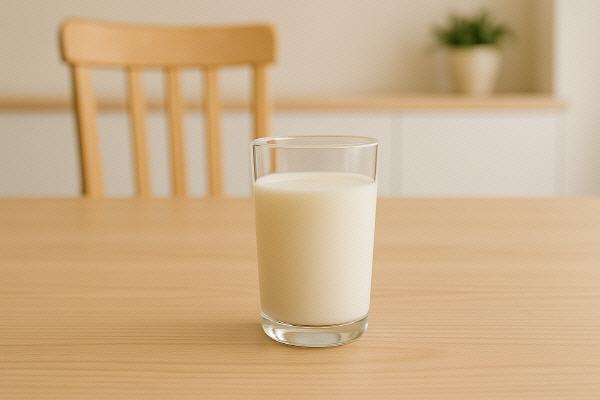Family Month, the beginning of a health gift is "a glass of milk."
May 02, 2025
|
Lee Soo-kyung, a housewife in her 50s living in Guro-gu, Seoul, never misses a glass of milk to her high school son's breakfast table. Lee, who is not genetically tall, always gives milk to his child, said "I let him drink it every day because it seems to help his child grow up." Especially when I go to the mart these days, there are many kinds of milk, but I insist on domestic milk rather than choosing anything. "He often buys fresh milk that needs to be refrigerated rather than sterile milk, and encourages his son to drink white milk rather than processed milk," he stressed.
However, Lee did not think much about whether he or other members of his family needed milk. Milk is an essential food not only for growing children, but also for middle-aged and elderly people in menopause.
Milk is a representative health food that contains all five essential nutrients such as protein, carbohydrates, fats, minerals, and vitamins. In particular, it is rich in calcium, which is essential for maintaining various physiological functions such as muscle contraction, nerve transmission, and blood clotting as well as bone and tooth health. Milk also contains vitamin D, which helps absorb this calcium, so it is highly nutritious. Vitamins B2, B12, and potassium are also included in this, which is effective in maintaining balance in the body, such as nervous system function, blood cell formation, and heart function maintenance.
For this reason, milk is a recommended representative food for growing adolescents, but its importance continues even after adulthood. Protein-rich milk helps maintain physical function in middle-aged people where muscle formation is important, and has a positive effect on fatigue recovery and energy generation. It is also known to be effective in skin and eye health.
Milk is also noteworthy when it comes to obesity. According to the 2023 National Health and Nutrition Survey, the obesity rate among adults in Korea is steadily increasing to 37.2%. While general soda and fruit juice contain excessive sugar, milk contains natural lactose, making it a relatively healthy alternative drink. Milk can help control the amount of food by increasing satiety, and in the long run, it can have a positive effect on weight management.
Milk is a necessity, not an option, in maintaining bone health, especially for middle-aged women whose female hormones are rapidly decreasing after menopause. At this time of rapid decline in bone density, calcium and vitamin D intake are essential for the prevention of osteoporosis. In addition, milk contains an amino acid called tryptophan, which is a raw material for serotonin, a neurotransmitter that helps with happiness and psychological stability. A glass of milk can also help relieve stress and improve sleep quality.
Milk is also very important for older people. As you get older, your basic metabolism decreases, your appetite and digestive ability decrease, and your teeth are not healthy, so you often have difficulty eating. As a result, it is often difficult to get enough nutrition, and milk is considered an ideal food because it is soft, easy to digest, and nutritious. According to the Statistics Korea's National Statistical Institute's report on the implementation status of Korea's Sustainable Development Goals (SDG) 2025, the proportion of undernourished people in Korea is increasing from 10.6% in 2011 to 16.4% in 2022 and 17.9% in 2023. Milk can be an efficient countermeasure in the reality that the imbalance in nutritional intake is deepening across all generations, including the elderly.
In addition, the social interest in healthy aging has recently increased, and the 'Slow Aging' diet to keep physical functions young and healthy has attracted attention. Among them, fresh milk is considered a representative natural food that helps slow aging. According to the NOVA system of the University of Sao Paulo, Brazil, an internationally recognized food classification system, fresh milk is classified as 'unprocessed or minimally processed food'. This means that fresh milk is a natural food that minimizes artificial addition or processing while maintaining its natural nutritional content as much as possible.
According to Korea 'Milk Recommendation Guidelines', it is recommended to consume 2 cups of milk for infants and young adults, 3 cups of milk, and 2 cups for adults on a daily basis of 200ml. "Milk has a very high calcium absorption rate compared to other foods and contains a variety of nutrients in a balanced way, so it is suitable for all life cycles," the Milk Self-Support Management Committee said. "I hope it will be an opportunity for all family members to drink milk together and take care of their health for Family Month."
In May, the month of the family, it is a time when there is a lot of worry as a health gift for the family. Rather than eating functional health functional foods, why don't you start with the most basic health habits. A cup of milk on the table every day can be a 'real gift' for the whole family.
This article was translated by Naver AI translator.














